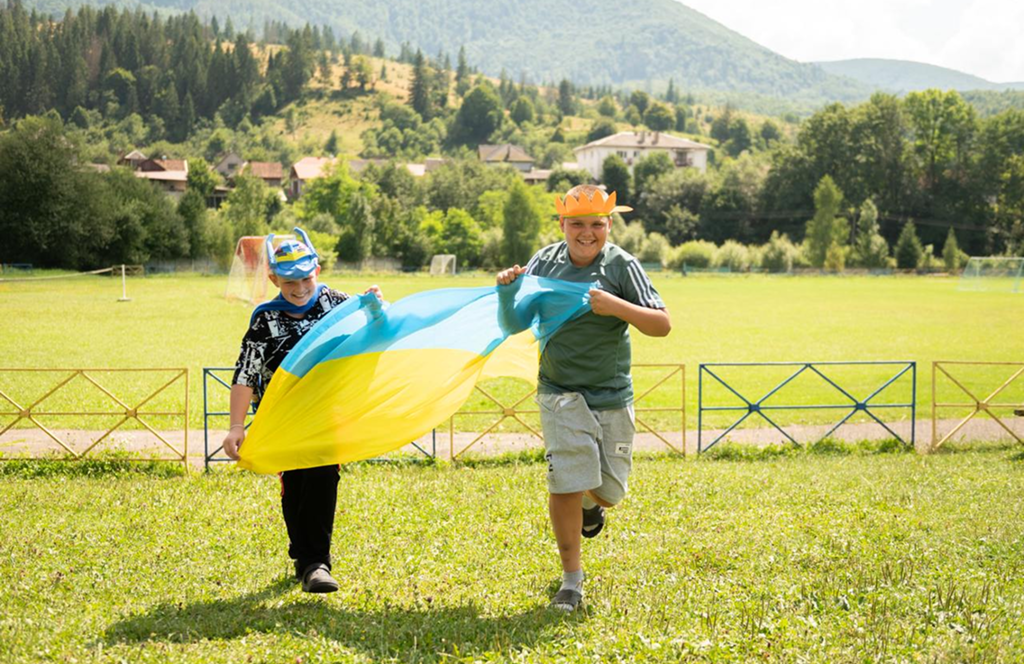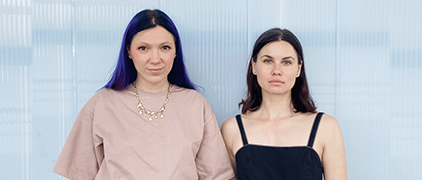Read 3 min
Corporate Social Responsibility in Times of War: Interview with CEO Club
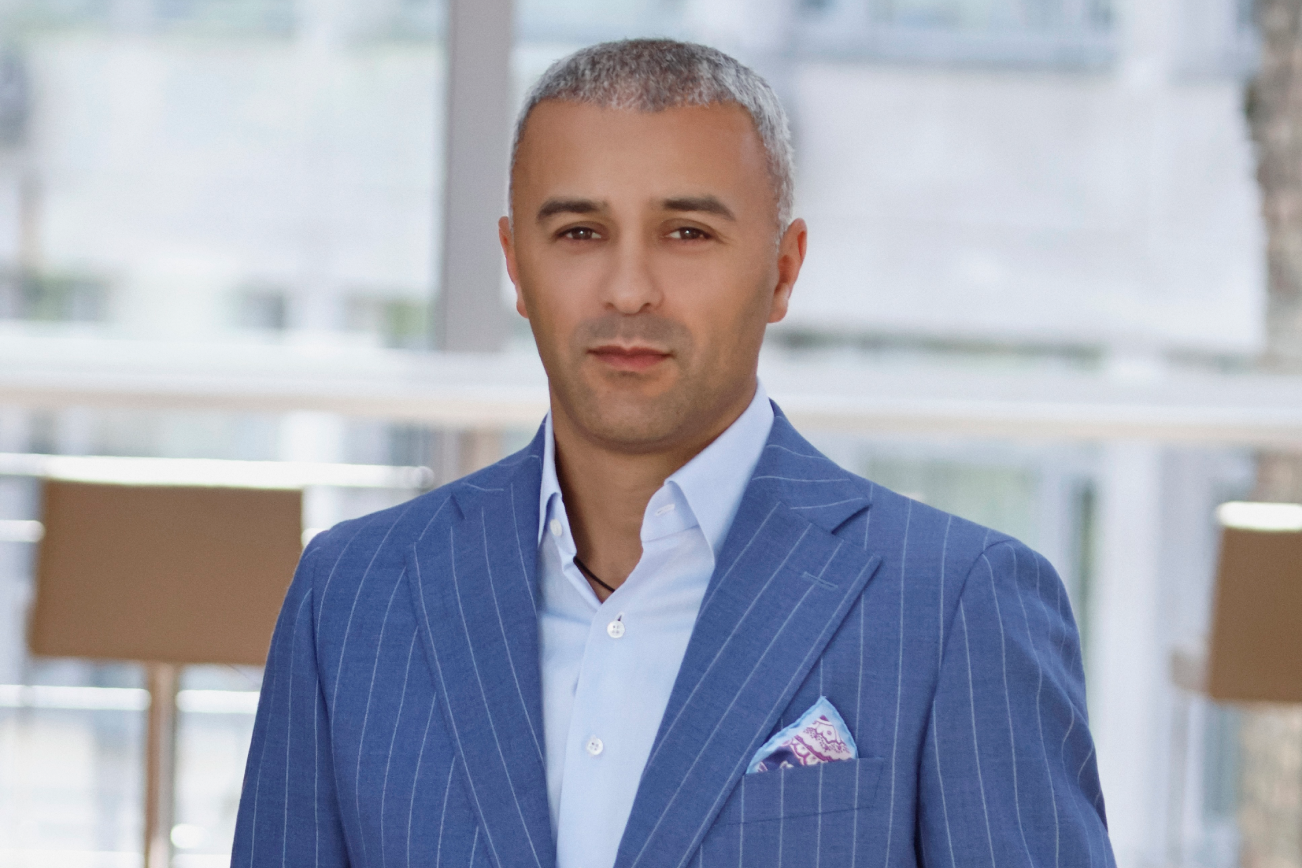
What should corporate social responsibility look like in times of war? Should businesses determine the country’s development vectors? CEO Club Ukraine unites Ukrainian companies’ leaders into a community and declares a new level of social responsibility: from individual initiatives through long-term systemic programs to a unified vision of Ukraine’s future. The Club’s founder, Serhiy Haydaychuk, shared his vision of the role of businesses in social transformation during the war and spoke about the Club’s landmark projects.
How Did CEO Club View Social Responsibility before the Full-Scale Invasion?
Social responsibility has always been one of the foundations on which the Club was created. Our entry criteria state that a person who has never been involved in social, charitable, or other projects cannot become a member of the Club. But it’s important to make a distinction: We unite owners and CEOs, not their businesses, and our criteria relate to personalities — whether their value set includes an understanding that they need to do more than just make money.
Throughout the Club’s history, we have implemented many different initiatives and individual tasks. Then, we came to realize that if we really want to make a big positive impact on society through our combined efforts, we must do that consciously and professionally.
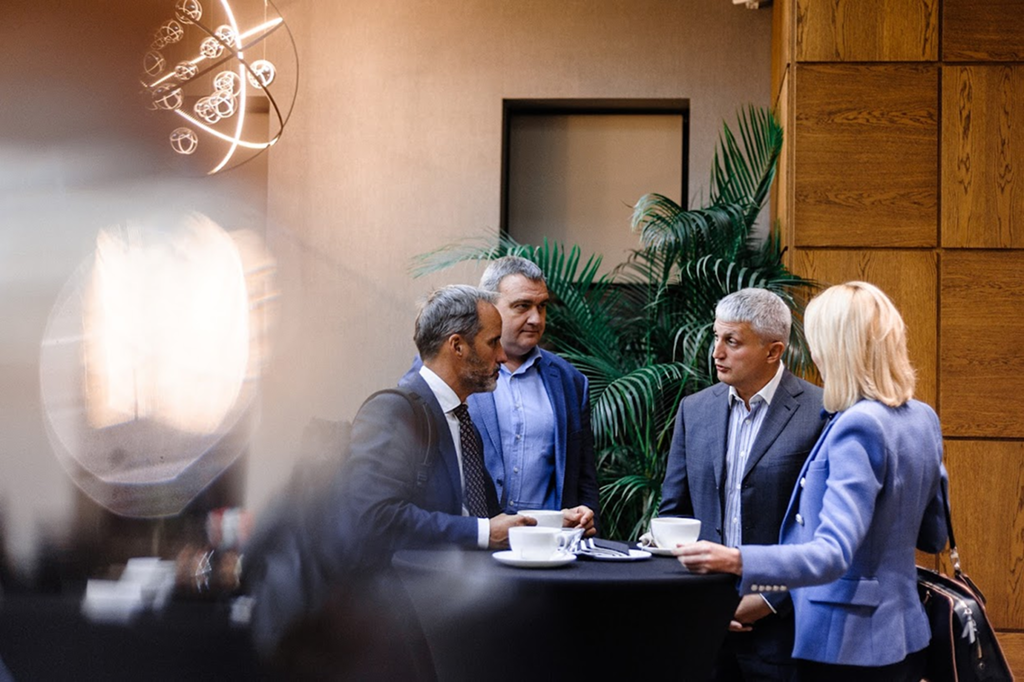
Systemic Initiatives of the CEO Club during the War
Most members of the CEO Club have their own charitable foundations and social projects, but we went further as a community. In the history of all civilizations, progress began when strong people learned to unite their efforts around something bigger. Five or six years ago, we started promoting the following culture in the Club: We started uniting together in long-term systemic projects rather than individual initiatives. We believe that you can’t belong to the country’s new business elite unless you learn to do something beyond your own efforts by combining them with your peers.
“Greening Ukraine”: The First Step toward a Lasting Change
One of our first systemic initiatives was the greening of Ukraine. We decided to plant trees on a massive scale as a long-term project. Herewith, we realized that planting trees alone is not enough to change the environment — it won’t help. We need to change people’s minds. And the fastest way to do this is to let people plant a tree once. That’s why we, together with our partners, involved tens of thousands of people in this process.
Together with our partners, we set up the Greening Ukraine charity foundation and funded the initiative. Together, we planted entire parks. For example, each member of the Club bought their own mature oak tree and we planted these 300 personalized oaks near Kyiv. Almost all Club members joined in.
Supporting the Families of Fallen Defenders
Another example of shared responsibility is our community’s support for the families of fallen defenders. Since 2015, the Club members have been helping families where one of the parents died defending Ukraine. In 2022, this grew into a separate foundation, Soborna Ukraina, which currently supports 164 families and 228 children. Usually, these are families relating to the military units that the Club strives to equip to help them perform successful combat missions.
How did you manage to consolidate this culture so that the Club members could implement initiatives together?
We realized that in order to raise a businessperson to the level of a social activist, we needed to expand their intellectual perception of the world. We then introduced philosophical programs at the Club, selecting the most powerful philosophers in the country, each of whom led a group of 8–10 people while discussing life and value issues. This yielded a significant result: More and more Club members joined systemic initiatives — long-term projects with established teams, a well-thought-out strategy, and systemic funding.
Generation+ Program: Helping Children from Disadvantaged Families
We decided to figure out why, despite the fact that many businesses support orphanages, the statistics for them are only getting worse. We conducted an analysis and found that 80% of children belonging to vulnerable categories end up in prison over the next 10 years, becoming a burden to society.
First, they are not ready for independent living and do not understand how to survive in real world. Second, they unconsciously repeat the paths of their predecessors, which often leads to crime. Third, for example, children in orphanages get used to depending on the system and believe that everyone “owes them.” And when they leave, they continue to expect that others will give them everything. But no one does.
We saw the problem and chose to act. We studied existing programs in Ukraine and abroad and realized they were ineffective; so, we engaged experts and developed our own one. Our program focused on children from vulnerable categories, i.e., 9–11 grade students. We set ourselves a minimum task of systemically influencing them during this period to at least slightly change the trajectory of their lives.
The program lasts for a year, and during this time we work with children from disadvantaged families and orphanages. We develop their thinking, soft skills, hard skills, motivation, and outlook. The project involves about 10 Club members responsible for its implementation on a regular basis. Other members support the children financially, each taking care of one or two children and funding them throughout the year.
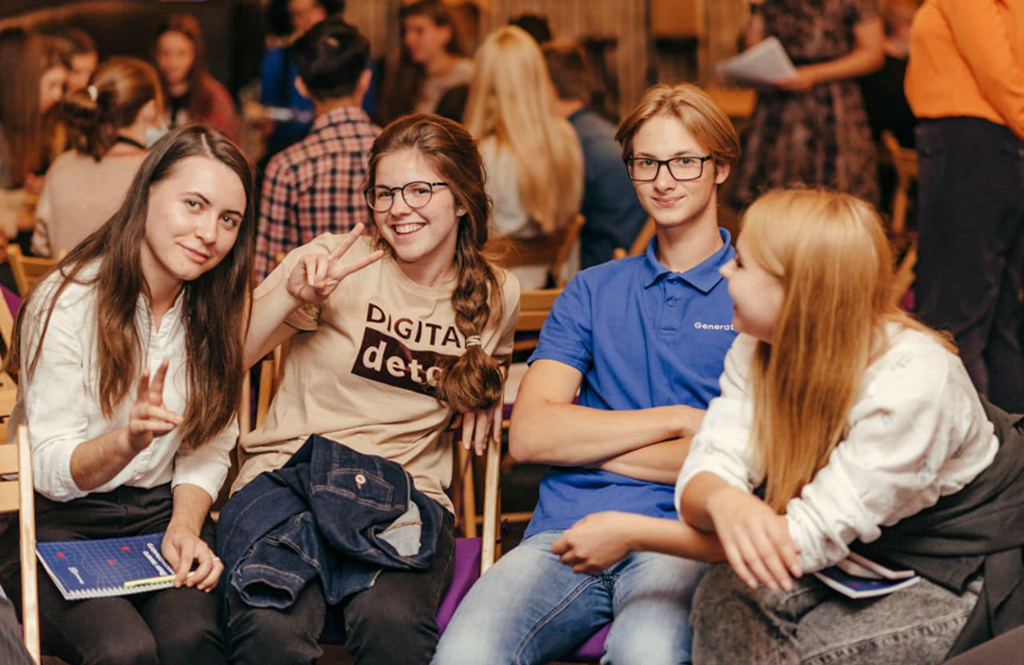
Despite the war, we have been continuing this program for five years, training businesses to work together on long-term projects and unite efforts.
How do you evaluate the effectiveness of a program? How do you know it is effective?
At the start of the program, a psychological interview is conducted with each child to assess their motivations, goals, skills, and views. At the end of the year, each of the 100 children has a new motivation to live, create, move, and develop. They begin to realize that success is their responsibility and learn to act independently rather than wait for help. They develop teamwork skills, overcome their initial isolation and passivity. By communicating with successful people, children get new role models that inspire and motivate them to achieve more.
Today, Ukrainian business has come to realize that supporting social initiatives is the right thing to do. But we need to learn to do this together rather than alone. This is a systemic, complex and multifaceted process: shaping culture, creating role models, etc. We have been doing this for about five years already.
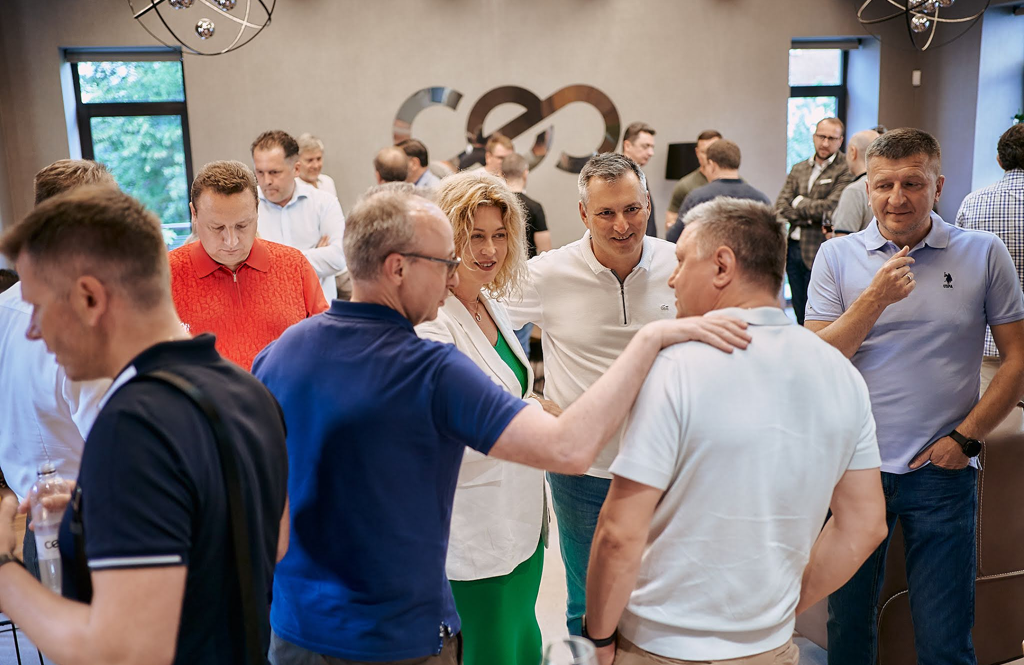
How business leaders, in addition to their own initiatives, came to also support social activities within the CEO Club?
In the Club, business leaders see a different level of responsibility, a different depth of needs. First, this is the country’s social context, and these people live in it, feeling these challenges. They don’t need to be explained further. Second, we create a role model in the community, set a standard of behavior, and everyone who joins wants to meet these standards to feel like a full-fledged part of the pack. And third, we work with business leaders’ worldview through humanitarian, systemic programs, such as those meetings with philosophers. The community is designed in such a way that you either join our code or leave.
How the CEO Club reviews corporate social responsibility after the full-scale invasion?
In the first weeks of the war, businesses simply organized themselves into groups, identified tasks, and performed and funded them themselves, replacing the state completely where it was lacking. Now, we every day raise funds in the Club’s chats for various needs and tasks. This has a great impact, but it is not enough to transform the country.
With such donations, the business is buying off a little — not from the frontline but from the more complex tasks and problems that actually need to be managed.
So, in order not to lose the country, we need to ask a broader question of the role of business in the country?
In the previous 30 years, new Ukrainian business chose to stay out of politics. They believed that politics was a dirty business to be handled by someone else rather than modern businesspeople. But globally, there is no such model in any developed country! Business is one of the key stakeholders of a country, which not only pays taxes to support the entire state but also generates new ideas, development, and technologies. It should participate in public governance.
I am convinced that business should become an active actor and stakeholder in our country. It should ask: What kind of country do we want? What should we do more together to build this country? And how should we influence the rules of the game in this country?
This is the greatest social responsibility — not just to meet current needs but to ask ourselves how to transform the country, politics, and institutions and how to grow to be an actor.
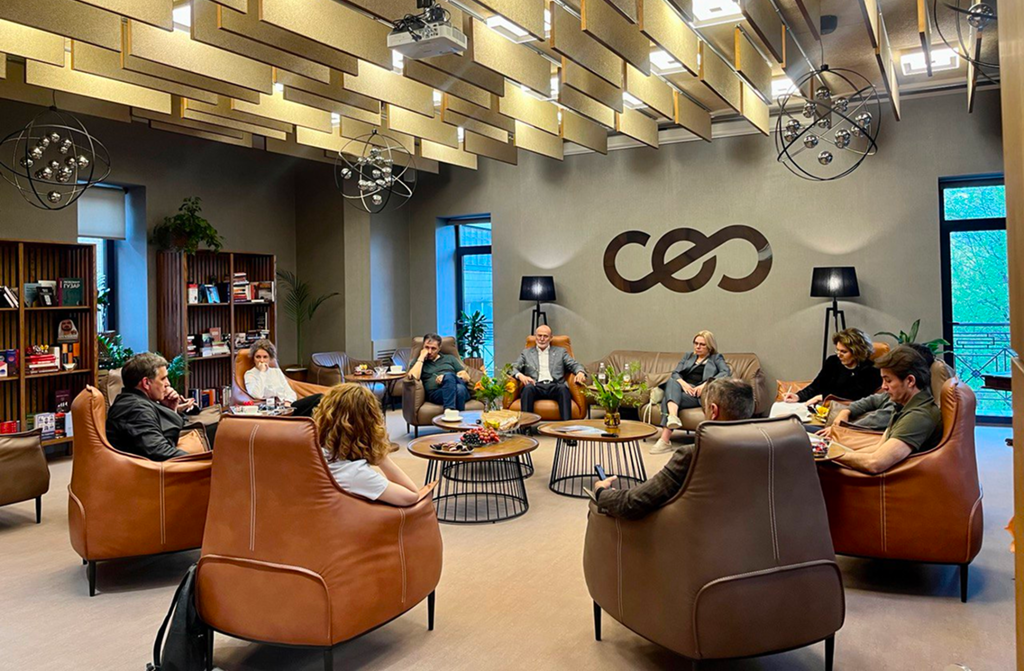
Unfortunately, even during the war, most people fail to realize this. I’m talking to business leaders and explain that the country is at the crossroads. When the war is over, we have two options. First, Ukraine faces global opportunities never seen in many years — the entire Western world is ready to become our partners and help. On the other hand, there are risks of disappearing completely — not because of an external enemy but because of internal problems. If you, the business community, do not unite and join in to radically change the rules of the game in the country, we will cease to exist, we will simply disappear. And I still get a reply: Let business do business and politicians do politics.
I am not calling on anyone to enter public politics. But we need to take responsibility for the country. And to do this, we need to have a vision of what we want this country to be and be willing to finance this vision. We need to support public organizations, volunteer movements, and new political forces — young, modern ones — that will implement this vision. This is the key role of Ukrainian business at this historical stage.
Do you manage to create a common vision with the actors and understand where you are going and why?
We are currently working on this task, and it’s not easy. Businesses want to simplify everything, hiring an expert to write a strategy or vision for them. But I’m firm about this. If we really want to make change, this vision must be in everyone’s mind, everyone must believe in it. And to do this, we must develop it together. Being a systemic, living process, this will take more than a week.
We are moving in this direction. For about a year and a half now, we have been working on the Vision of Ukraine’s Future project — a series of interviews with different people about the country’s prospects. Now, we have combined efforts with the Institute for the Future and plan to invite many business associations in this process and create a common vision. We want to involve as many people as possible, infect a large number of opinion leaders with this vision, and then the country will have a chance and businesses will gain agency.
I am trying to help new Ukrainian businesses rise to the level of an actor. We need to crystallize new energies in the country, form new elites from different spheres, launch them into the political process, and concentrate energy around the project of Ukraine’s development.
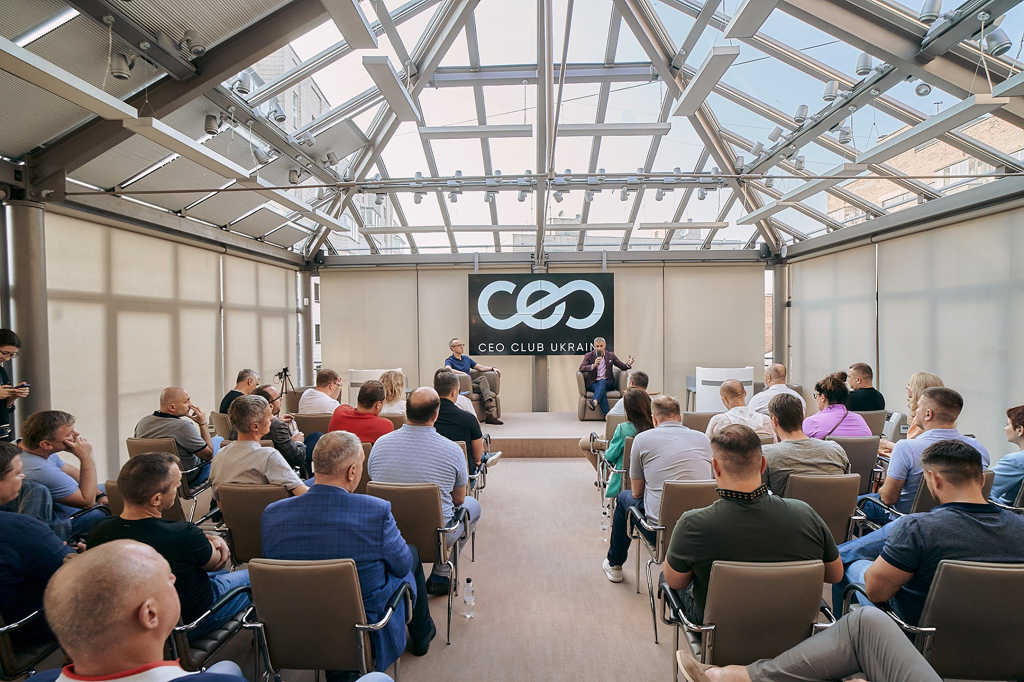
The most organized, systematic, still resourceful, and medium-term thinking class of people in the country is business, which can act as this catalyst, the organizational core. But we can’t do this if we do not have a vision of the country’s future.
Corporate social responsibility of Ukraine’s business sector during the war is not only about helping but also about transforming the country. How do you see the role of business in changes? Share your thoughts on our social media channels.
More examples of social responsibility can be found on the Giving Tuesday’s Blog of Engagement.


